Is Thyroid Curable Completely? - Know Answer

Quick Summary
- Thyroid disorders are mostly manageable with the optimum dietary and lifestyle changes.
- Thyroid disorders come in various forms, including hyperthyroidism, hypothyroidism, and thyroid nodules.
- The thyroid gland is considered vital for secreting hormones involved in various bodily processes.
Several patients who have been diagnosed with disorders related to the thyroid gland, have one common question, “Is thyroid curable or not?” for their medical practitioners. Although thyroid disorders bring along many health complications, they are mostly manageable with the optimum dietary and lifestyle changes.
While you wish to know “Can thyroid be cured?” it is important to first walk you through everything you need to know about thyroid disorders. The thyroid gland is considered vital for secreting hormones involved in various bodily processes. And, the overproduction or underproduction of these hormones characterises thyroid disorders. Notably, thyroid disorders come in various forms. Read on to find out more.About Thyroid Gland
The thyroid gland is an endocrine gland that produces hormones. It is situated in the front of the neck and is surrounded by the trachea (windpipe). It is divided into two lobes, the right and left, which are connected by a narrow bridge of tissues called an isthmus.
Triiodothyronine (T3) and thyroxine (T4) are the two primary hormones produced by the thyroid gland. The hormones influence the body's metabolism and growth. Thyroid hormones are responsible for regulating the heart, protein creation by tissues, and the gastrointestinal system, as well as neurodevelopment and skeletal preservation.
Functions of Thyroid Gland
The principal function of the thyroid gland is to produce calcitonin, T3 and T4 hormones. Calcitonin assists in calcium and bone metabolism whereas T3 and T4 hormones contribute to increasing the basal metabolic rate of the human body. The gland uses iodine to produce these hormones which affect weight, digestion, heart rate, moods and respiration.


Thyroid Diseases: What are they?
Thyroid diseases are conditions where the thyroid gland fails to produce the appropriate amount of thyroid hormones. Excessive production or less production of thyroid hormones can lead to the following diseases:
Hypothyroidism
When the thyroid gland produces very little thyroid hormones, the condition is known as hypothyroidism. The following disorders may lead to hypothyroidism:
- Thyroiditis: In this condition, the thyroid gland appears swollen and inflamed. Also, its ability to generate hormones can be reduced.
- Thyroiditis due to Hashimoto's: Hashimoto's thyroiditis is a non-painful immunological illness in which the thyroid gland is attacked and harmed by the body's cells. This illness is hereditary.
- Thyroiditis following delivery: After giving birth, 5% to 9% of women develop this syndrome. It normally only lasts a short while.
- Iodine deficiency: The thyroid gland uses iodine to make hormones and its deficiency can cause hypothyroidism.
- An underactive thyroid gland: In this case, the thyroid gland functions improperly from birth.
Hyperthyroidism
Hyperthyroidism is characterised by excessive thyroid hormone production and accelerated energy expenditure. It may result from the following conditions:
- Graves' disease: An autoimmune disorder that affects the thyroid gland. With this illness, the thyroid gland as a whole may become hyperactive and generate excessive amounts of hormones.
- Nodules: Hyperthyroidism may be brought on by thyroid nodules that are hyperactive.
- Thyroiditis: Thyroiditis refers to inflammation of the thyroid gland, which can cause damage to the thyroid cells and disrupt the normal functioning of the gland. This condition might cause pain or no symptoms at all. With thyroiditis, hormones that were kept in the thyroid are released.
- Iodine overdose: The thyroid gland overproduces thyroid hormones when there is an excessive intake of iodine.
Symptoms Related to Thyroid Disorders
If you have thyroid problems, then you could encounter a wide range of symptoms. Notably, thyroid disease symptoms closely resemble those of other illnesses. To identify thyroid disorders as early as possible, proper medical guidance is needed.
Hypothyroidism frequently shows the following symptoms:
- Fatigue
- Weight gain
- Forgetfulness
- Heavy and frequent menstrual periods
- Coarse and dry hair
- Increased sensitivity to cold temperatures
- Hoarse voice
On the other hand, the following are typical signs of hyperthyroidism:
- Anxiety, nervousness, and irritability
- Trouble sleeping
- Weight loss
- Goitre or an enlarged thyroid gland
- Muscle tremors and weakness
- Irregular periods
- Increased sensitivity to heat
- Vision problems or eye irritation
Is Thyroid Curable Permanently?
You may be curious and wish to know if the thyroid is curable permanently. The answer to that would be yes; hyperthyroidism can be permanently treated. Hyperthyroidism can be treated surgically by removing or managing your thyroid with medication.
However, you must undergo thyroid hormone replacement therapy after removing your thyroid. This is because your body still requires thyroid hormones, just not at the same high amounts you would have in hyperthyroidism.
If someone wants to cure thyroid disease permanently, then figuring out the root cause is essential. These are some of the causes of thyroid diseases:
- Gut leakage
- Excessive inflammation
- Nutritional adequacy
- Poor diet
- Continued intake of painkillers, antacids, and antibiotics
- Stress toxins, such as mercury and aluminium
- Pesticide and plastic exposure
Ways to Cure Thyroid Diseases Permanently
Your doctor aims to get your thyroid hormone levels back to normal. Your chosen method of treatment will depend on the underlying causes of your thyroid problem. Treatment options for hyperthyroidism may include:
- Methimazole and propylthiouracil medications: These drugs prevent the thyroid gland from producing hormones.
- Beta-blockers: These drugs aid in symptom management but do not alter the level of hormones in your body.
- Radioactive iodine: Even if the thyroid cancer cells have moved to certain other areas of your body, the radioactive iodine from the medication is incorporated into your bloodstream and taken up by the thyroid cancerous cells during this treatment. The cancer cells are then obliterated by the radiation. The thyroid gland suffers cell damage due to this therapy, which prevents it from producing a lot of thyroid hormones.
- Surgery: Your healthcare professional might surgically remove your thyroid gland as a more long-lasting method of treatment. Post-surgery, the thyroid gland won't produce hormones and you won't require any prolonged medication.
On the other hand, the main course of treatment for hypothyroidism involves:
- Thyroid replacement therapy: This treatment is a synthetic technique to replenish thyroid hormones in your body. You may manage thyroid disease and lead a normal life by taking the prescribed medication. Levothyroxine is one such widely used medication for thyroid replacement therapy.
Lifestyle Changes to Manage Thyroid Disease
Thyroid diseases are typically caused by poor eating habits, stress, and more. The standard treatment for hypothyroidism is to take thyroxine supplements on a daily basis. However, dietary and lifestyle modifications may assist in managing thyroid issues permanently. Amongst the modifications that can aid in thyroid disorder management are:
- Exercise: Physical activity can assist with the thyroid treatment programme by reducing stress, lowering anxiety and depression, and keeping you healthy. Stretching helps in releasing feel-good hormones that assist with feeling better both physiologically and psychologically. Cardio workouts should be prioritised for optimal results.
- Meditation: Hypothyroidism is normally linked to patients struggling with mental health issues and anxious feelings. Meditation can be a useful method for dealing with one's feelings and achieving inner clarity.
- Gluten-free eating habits: The link between celiac disease and hypothyroidism is well documented. Gluten is a factor contributing to celiac disease. Gluten is a protein found in maize, corn, and other grain-based foods. Eliminating gluten from one's diet can alleviate the signs of celiac disease and hypothyroidism.
- Control your alcohol consumption: Alcohol abuse disrupts thyroid function. Having alcohol in moderation, however, causes no significant harm to the thyroid gland.
- Avoidable food: Eliminate soy products, cruciferous vegetables such as cauliflower, cabbage, and broccoli, high-fibre intake, refined carbohydrates, and frozen foods from the diet.
- Tension reduction: You might think that stress is common for every individual in general. But, to find a long-lasting treatment for thyroid diseases, you must find a solution for dealing with and reducing stress. Persistent stress increases inflammation in the body and reduces thyroid hormone production. To deal with stress effortlessly, you may simply walk outside, cook, paint, or do whatever you find comforting and soothing.
- Healthy diet: Our bodies cannot function without nourishment. Food quantity is vital, but so is food quality. Eating processed items or food that has been exposed to pesticides is unhealthy. Following a nutritious and healthy diet is crucial to lose weight while managing a thyroid disease.
When to Consult a Doctor?
The decision of when to consult a doctor can often be tricky. There can be several circumstances that call for a recommendation to an endocrinologist who is a hormone expert. When you or somebody important to you is identified with a thyroid issue and you find yourself in one of the following circumstances, then you should request a recommendation from your primary care physician:
- You're attempting a pregnancy or are already pregnant
- You have nodules or an expanded thyroid gland
- You have Graves' syndrome or any other form of hyperthyroidism
- Your hypothyroidism is brought on by a pituitary gland issue
- You are affected by thyroid eye illness
- You have cancer of the thyroid gland
- Despite receiving treatment, you don’t feel any improvement
Takeaway
Thyroid disease is typically a long-term medical condition that needs constant attention. Thyroid disorders can result in a wide range of undesirable symptoms, including dry skin, persistent fatigue, memory loss, and an increased risk of heart disease. Almost all thyroid disorders, including Hashimoto's, which accounts for 90% of cases of hypothyroidism, can be permanently cured for many patients.
It is advisable to visit your healthcare professional if you have symptoms related to thyroid disorders so that he/she can examine you and recommend suitable medication or therapy. Your physician will monitor your therapies and adjust them as per the requirement. If you've already received a diagnosis for thyroid disorders, then you'll probably need to visit your doctor frequently to ensure your treatment is effective.
In case you need any additional assistance, like finding a suitable doctor or a clinic near you, feel free to contact us at HexaHealth. The experts here will guide you through the process and help you find the treatment you are seeking.
Suggested Reads
Frequently Asked Questions
Is thyroid completely curable?
Can thyroid be cured naturally without surgery?
Is thyroid cancer curable?
What factors and stages decide whether the thyroid is curable?
How long does it take to cure a thyroid disease?
Can any natural remedies or lifestyle changes cure thyroid diseases?
Can medication alone cure thyroid disease?
Is surgery necessary to cure thyroid diseases?
What are the long-term outcomes of thyroid treatment?
Can thyroid diseases recur after treatment?
What are the common complications associated with thyroid diseases after being cured?
How often do patients need to be monitored after thyroid treatment?
Patients sometimes need to be monitored after thyroid treatment once a year or more frequently if your doctor recommends it. Also, you should get a blood test done if:
- You have a thyroid condition
- You've previously undergone treatment for an overactive thyroid
What factors affect the prognosis of thyroid diseases?
Can diet and exercise help in the cure of thyroid diseases?
What is the role of radioactive iodine in treating thyroid diseases?
Are there any alternative or complementary therapies to help cure thyroid diseases?
Is it possible for thyroid diseases to cause permanent damage to the thyroid gland?
Can stress affect the treatment or cure of thyroid diseases?
Is it necessary to monitor thyroid function even after completely curing a thyroid disease?
References
All the articles on HexaHealth are supported by verified medically-recognized sources such as; peer-reviewed academic research papers, research institutions, and medical journals. Our medical reviewers also check references of the articles to prioritize accuracy and relevance. Refer to our detailed editorial policy for more information.
Last Updated on: 25 April 2023
Author
HexaHealth Care Team
HexaHealth Care Team brings you medical content covering many important conditions, procedures falling under different medical specialities. The content published is thoroughly reviewed by our panel of qualified doctors for its accuracy and relevance.
Expert Doctors (10)
NABH Accredited Hospitals (6)
Latest Health Articles
Related Treatments




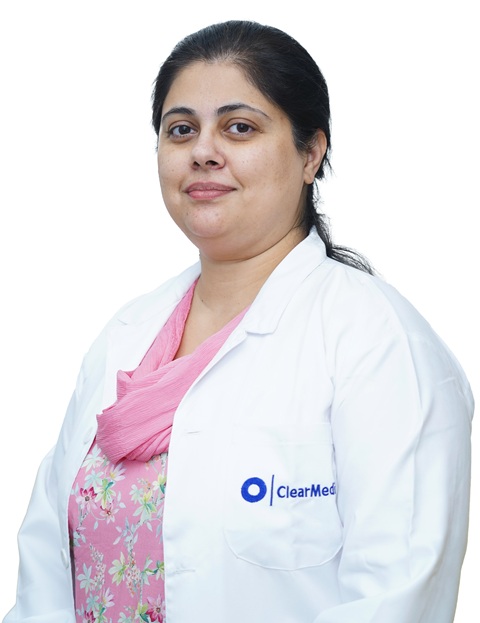
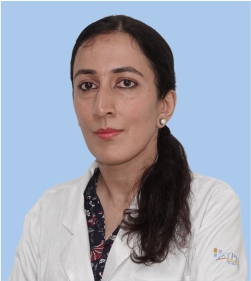

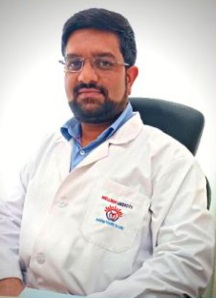
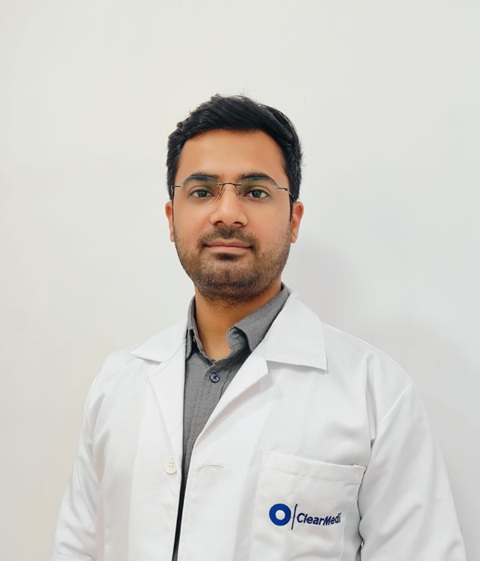


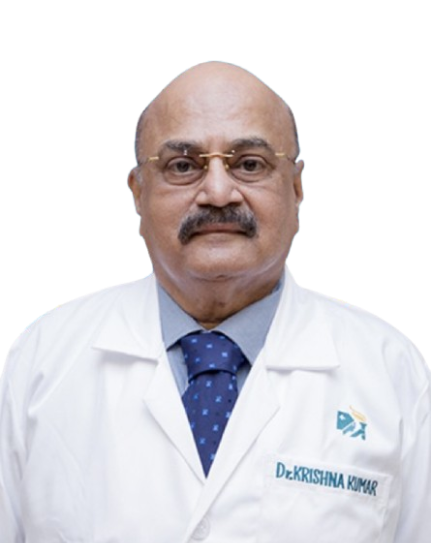















 Open In App
Open In App